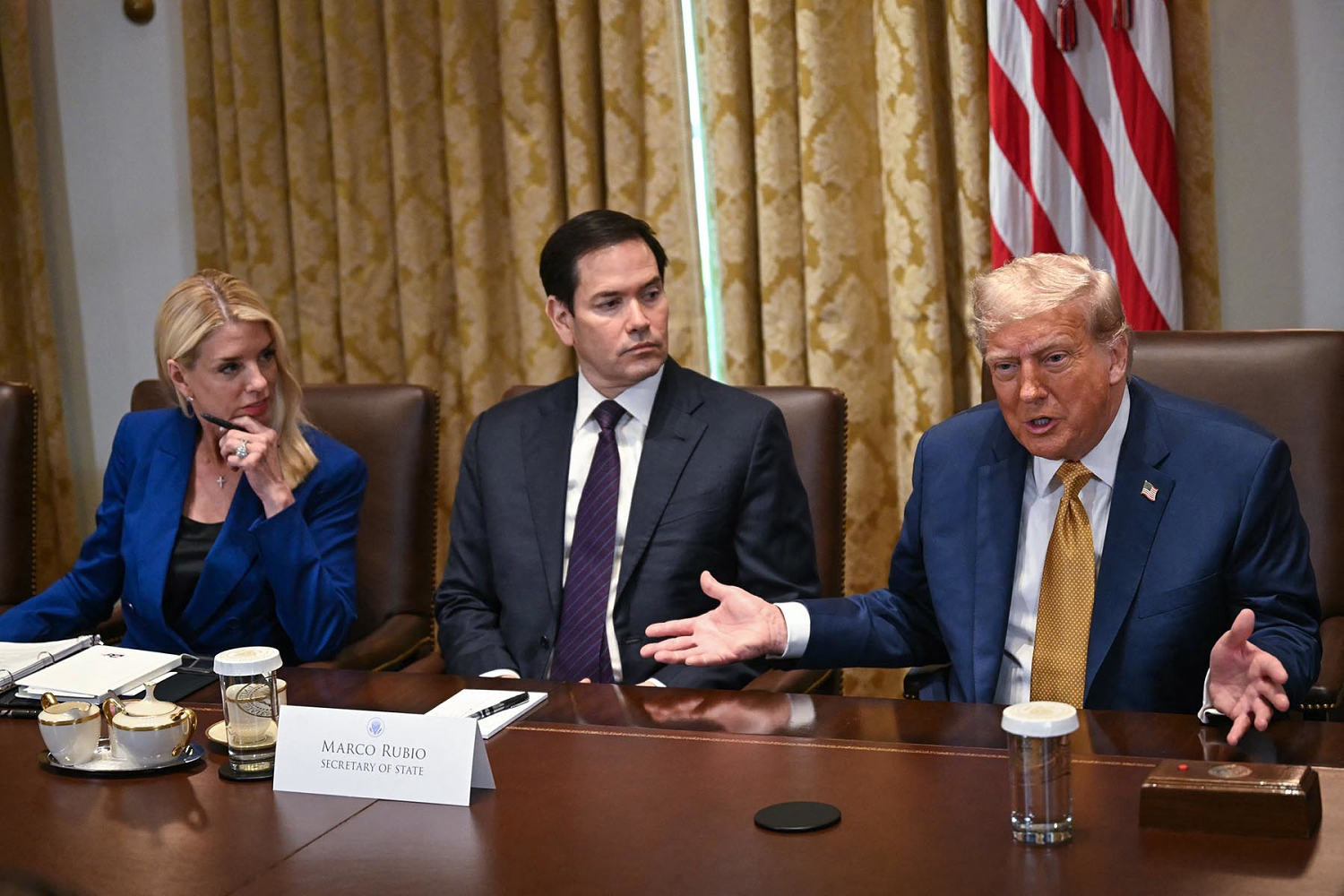
President Donald Trump said Tuesday there would be “no extensions” granted to the new August 1 deadline he set Monday for U.S. trading partners to negotiate new deals or face significantly higher tariffs on goods imported from their countries.
In a Truth Social post, Trump wrote:
“As per letters sent to various countries yesterday, in addition to letters that will be sent today, tomorrow, and for the next short period of time, TARIFFS WILL START BEING PAID ON AUGUST 1, 2025. There has been no change to this date, and there will be no change. In other words, all money will be due and payable starting AUGUST 1, 2025 — No extensions will be granted. Thank you for your attention to this matter!”
Stocks, already on edge after Trump began sending out warning letters Monday, fell meaningfully into the red after the post went live, though returned to nearly flat on the day shortly after noon Tuesday.
In remarks to the press around 12:30 p.m. Tuesday, Trump clarified that “We can do things over the years too … we’re not hard-line.”
He also appeared to back pedal on announcing deals that Treasury Secretary Scott Bessent said Monday would materialize in 48 hours.
“The deals are mostly my deal to them,” Trump said. “We’re picking a number that’s low.”
In a note to clients published shortly before Trump’s midday remarks titled “Markets are (probably) right to ignore Trump’s latest tariff flip-flop” Capital Economics Deputy Chief Markets Economist Jonas Goltermann, wrote that his group ultimately expects U.S effective tariff rates to remain around their current levels.
“While continued noise around tariffs could well generate some volatility in the near term, we think the bar for another major sell-off remains quite high,” he said.
Trump announced the new deadline while publishing more than a dozen new letters warning countries their goods would be subject to tariff levels close to the eye-watering ones he laid out in his shock “Liberation Day” speech in April.
“The tariff rollercoaster ride continues,” ING analysts wrote in a note Monday. “While the ‘letters’ leave some more room for continued frontloading — although shipping times need to be considered — and negotiations, they also mean that the tariff saga continues.”
“The ongoing uncertainty could do almost as much economic harm as actual tariffs,” they added.
Other Wall Street analysts estimated that the tariff rates contained in the 14 letters sent out so far could add slightly to consumer inflation, even though many of the recipients are small trading partners.
The Yale Budget Lab noted that the letters sent Monday would hike the effective tariff rate on U.S. consumers to the highest since 1934.
Bank of America analysts said in a note that they “don’t think the tariffs announced on Monday are a done deal,” adding that — despite Trump’s assertions — they view the deadline extension to August 1 as a suggestion that “there is still room for negotiation.”
With passage of his controversial tax cut and spending bill now behind him, Trump is once again stoking the fires of his trade war. He remains fixated on closing the U.S.’s trade gap — or the difference in how much America imports versus how much it exports — with other nations.
It’s a preoccupation many economists dismiss as simplistic, since it merely reflects the fact that the U.S. is a large, advanced economy that no longer needs to produce goods, from clothing to school supplies, that can be made more cost-effectively elsewhere.
Meanwhile, the economies of the smaller nations that the U.S. relies on to supply it with those lower-cost goods stand to be devastated by any changes to trade flows.
Nations around the world have responded by signaling resistance to the latest round of Trump’s threats. Chinese state media warned the Trump administration Tuesday against striking deals that sideline China, especially tariffs on transshipments aimed at circumventing China’s duties. Meanwhile, Germany’s finance minister warned that the European Union would impose retaliatory measures on U.S. goods if a “fair” deal does not materialize.
“We want an agreement with the Americans but I also say very clearly that this deal must be fair,” Lars Klingbeil told German parliament members Tuesday. “And if we do not succeed in reaching a fair deal with the United States, then the European Union will have to take countermeasures to protect our economy.”

Leave a Reply